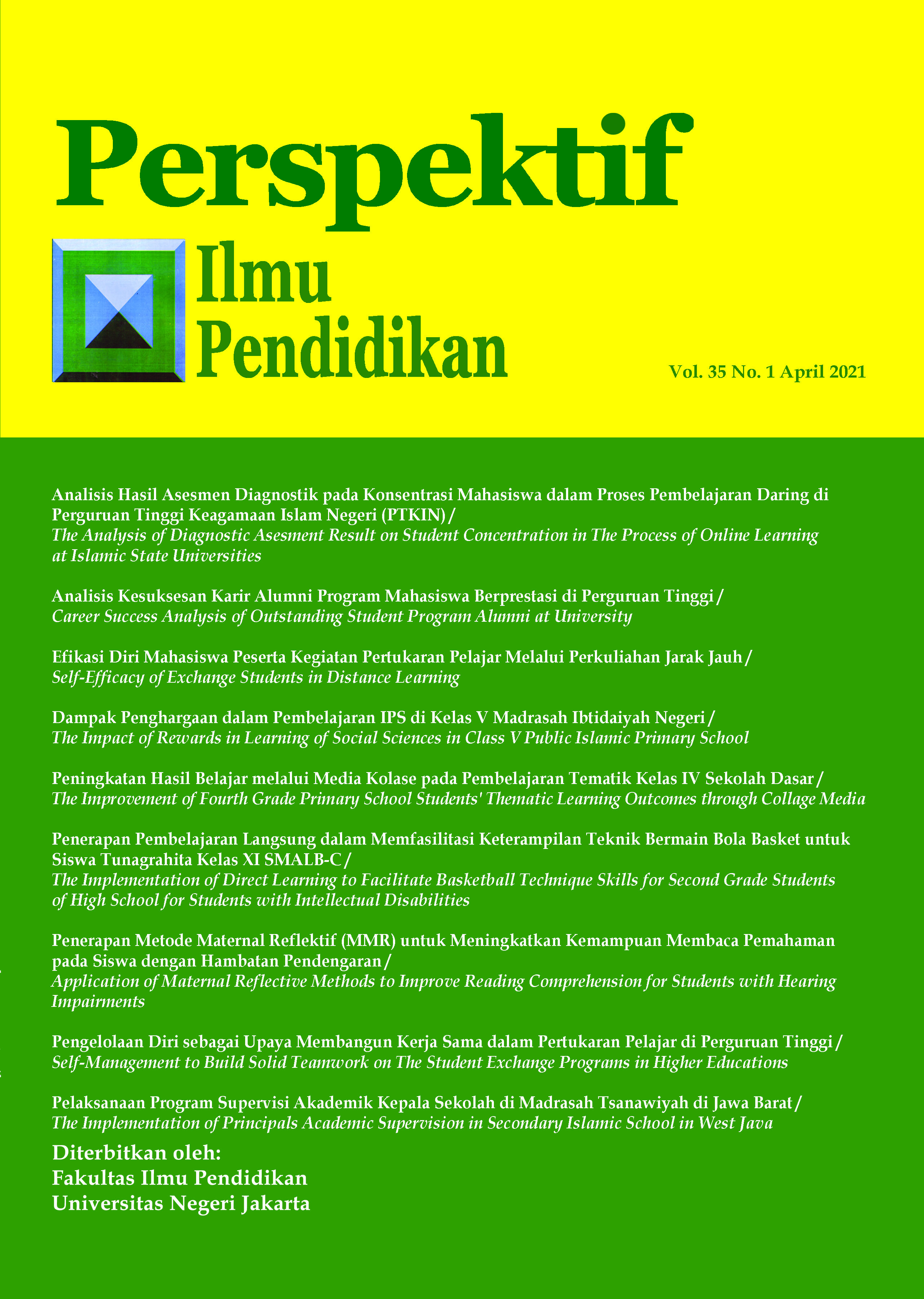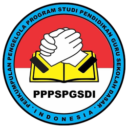PELAKSANAAN PROGRAM SUPERVISI AKADEMIK KEPALA SEKOLAH DI MADRASAH TSANAWIYAH DI JAWA BARAT
THE IMPLEMENTATION OF PRINCIPALS ACADEMIC SUPERVISION IN SECONDARY ISLAMIC SCHOOL IN WEST JAVA
DOI:
https://doi.org/10.21009/PIP.351.9Keywords:
implementasi, kepala sekolah, supervisi akademik, implementation, principals, academic supervisionAbstract
Supervisi akademik yang diterapkan kepala sekolah dapat efektif memberikan bantuan, membimbing dan membina guru agar mereka dapat bekerja lebih baik dalam membimbing peserta didik serta dapat memperbaiki kinerjanya dalam meningkatkan pembelajaran di sekolah dengan menggunakan pendekatan self-reflection sebagai kebaharuan (novelty) dalam supervisi akademik. Tujuan penelitian ini untuk melaporkan program, implementasi, efektivitas, kendala dan tindaklanjut supervisi akademik kepala sekolah. Penelitian ini merupakan penelitian kualitatif dengan metode studi kasus, yang dipaparkan secara deskriptif analitik. Pengumpulan data dengan wawancara, observasi, dan studi dokumen. Sumber data terdiri dari kepala sekolah, wakil kepala bidang kurikulum, dan 2 orang guru mata pelajaran di satu Madrasah Tsanawiyah di wilayah Kabupaten Sumedang, Jawa Barat. Teknik analisis data melalui reduksi data, penyajian data, penarikan kesimpulan. Uji keabsahan datanya dengan triangulasi. Hasil penelitian menunjukkan bahwa 1) pelaksanaan program supervisi akademik meliputi penentuan tujuan, pengembangan kurikulum, evaluasi perangkat pembelajaran, metode mengajar, kegiatan pembelajaran, pengembangan pengalaman belajar siswa, 2) supervisi dilakukan dengan pra-observasi, observasi, dan pasca-observasi, 3) pelaksanaan supervisi akademik di sekolah sudah efektif, 4) terdapat kendala dalam pelaksanaannya yaitu kendala internal dan eksternal, 5) tindak lanjut supervisi akademik dengan melakukan pembinaan secara langsung dan tidak langsung. Kontribusi penelitian ini adalah memberikan inspirasi bagi kepala sekolah untuk melakukan pembaharuan kegiatan supervisi akademik menggunakan pendekatan self-reflection.
Academic supervision by the principals could effectively help, guide, and build teachers to guide students and improve their performance in school learning through a self-reflection approach as a novelty in academic supervision. This research uses a qualitative approach with a descriptive-analytic method. Data collected through interviews, observation, and documentation. Participants consist of Supervisors, Principals, and deputy heads of the curriculum at the madrasah in Sumedang Regency, West Java. Data analyzed reduction, presentation, drawing conclusions, and testing the validity of the data with triangulation. The results of this study indicate that 1) The implementation of the academic supervision program in this madrasah consists of setting goals, curriculum development, learning tools evaluation, teaching methods, learning activities, and developing student learning experiences 2) supervision conducted at this madrasah through the steps of pre-observation, observation, and post-observation, 3) The implementation of academic supervision in this madrasah has been effective, 4) Obstacles to the implementation of academic supervision includes internal constraints and external constraints 5) Follow-up activity of academic supervision in this school consists of direct and indirect construction. The follow-up activity includes improving academic supervision instruments, consists of the learning process and supervision instruments construction. The research contribution is to inspire the principals for the renewal of the self-reflection approach in supervision activities.
Downloads
Published
How to Cite
Issue
Section
License
Authors who publish with this Journal agree to the following terms:
- Author retain copyright and grant the journal right of first publication with the work simultaneously licensed under a creative commons attribution licensethat allow others to share the work within an acknowledgement of the work’s authorship and initial publication of this journal.
- Authors are able to enter into separate, additional contractual arrangementfor the non-exclusive distribution of the journal’s published version of the work (e.g. acknowledgement of its initial publication in this journal).
- Authors are permitted and encouraged to post their work online(e.g. in institutional repositories or on their websites) prior to and during the submission process, as it can lead to productive exchanges, as well as earlier and greater citation of published works.
-
Users/public use of this website will be licensed to CC BY-NC-SA Creative Commons Attribution-NonCommercial-ShareAlike 4.0 International License












